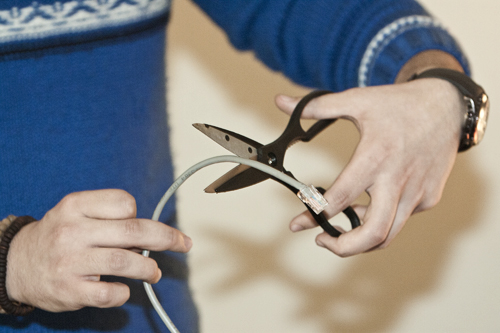The year 2012 saw a series of fights for the freedom and openness of the Internet. SOPA, PIPA, CISPA and the WCIT treaty all failed. But it’s a new year, and the fight will never be over.
Say goodbye to the Internet as you know it

The year 2012 saw a series of fights for the freedom and openness of the Internet. SOPA, PIPA, CISPA and the WCIT treaty all failed. But it’s a new year, and the fight will never be over.
If these acronyms mean nothing to you, well, that’s even more proof that this is a fight that is almost impossible to win. SOPA (Stop Online Piracy Act) and PIPA (Protect IP Act) were House and Senate bills, respectively, concerning piracy and copyright that would have given corporations and organizations like the Recording Industry Association of America all kinds of power to control and censor content on the Internet.
CISPA (Cyber Intelligence Sharing and Protection Act) would have allowed the U.S. government a cybersecurity exception to all kinds of online privacy laws, and the WCIT (World Congress on International Telecommunications) treaty would have instated a governance board to oversee much of the Internet’s framework. The WCIT treaty was so bad that a 397–0 resolution against was passed by the U.S. House of Representatives.
All of these acts, if passed, would’ve chipped away at the openness that makes the Internet what it is, and they all happened within a few months of each other.
Each time, Google mobilized people, Reddit got rabid about freedom of speech and enough attention was drawn to these measures that they’ve gone by the wayside. This isn’t going to stop, though, and people are going to get tired of trying to stop it.
Right now, there’s a lot of pressure on Congress and the United Nations to tighten control of the Internet. Last week, around the same time that President Barack Obama signed an executive order dealing with cybersecurity, the Senate reintroduced CISPA. This concern for security is absolutely valid, as U.S. businesses and agencies run into more frequent problems with foreign hackers. Action is going to be taken, whether or not the Internet wants it to happen. So maybe it’s time to stop fighting it.
Obama’s executive order specified that the cybersecurity measures shouldn’t affect privacy or civil rights, but an executive order can only do so much. A lot depends on this new version of CISPA being better than the last one, without the ominous clauses about companies turning over data to the government. If it’s bad, it probably won’t pass this year, either. But what about next year, and the year after that? This issue isn’t going to go away.
What should be happening, rather than blackout days and boycotts, is a concerted effort to put forth new legislation. I am more than certain that at least one of the 7 million people who signed Google’s petition against SOPA is capable of drafting a bill and finding influential sponsors for it. The answer to fighting these intrusive new proposals is to counter them with ones that will fulfill the same need without infringing on privacy and personal rights.
At the same time, people need to realize that most of their privacy is gone, and what’s left is being slowly stripped away. Facebook keeps your data forever and hates to give it out, and your smartphone collects data about you no matter who made it.
This isn’t just true of the online world; TriMet just announced that its next series of buses will have video and audio recording equipment onboard. Privacy seems to be the price we pay for technological development and ease of use. There will always be people who use burner phones for everything and hide all of their online activity behind a wall of proxies and virtual private networks, but for the majority of people, privacy is disappearing faster and faster.
The problem with Internet privacy doesn’t lie with the government, or at least not entirely, but rather the companies we use online. If you’re truly outraged with the rise of strict laws and the invasion of privacy, your best bet is to put away that cell phone, delete your Facebook account and never go back. Don’t forget to stop shopping at Amazon and every other online retailer. Don’t use Gmail, either—not even your student account provided by the school.
Internet freedom is important, but there isn’t all that much damage left to do. All we can do is hope to find the best solution.






So true.